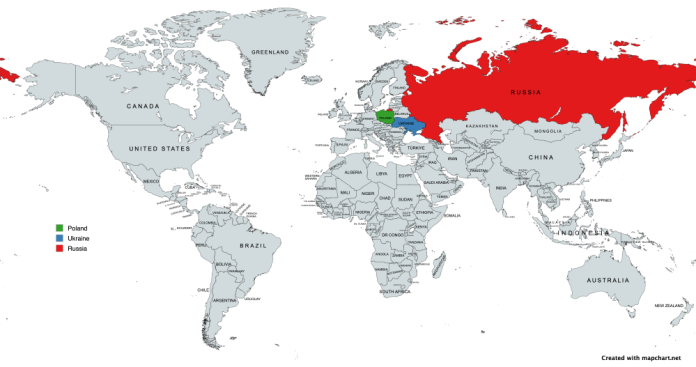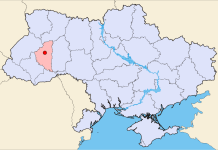
Polish authorities are intensifying their investigation into an explosion that damaged a railway line between Warsaw and Lublin, a route deeply tied to the flow of aid and military supplies into Ukraine. Prime Minister Donald Tusk called the incident an “unprecedented act of sabotage” and pledged that those responsible will be tracked down “regardless of who their backers are.”
Tusk visited the site on Monday, expressing relief that no one had been hurt. The explosion, discovered early Sunday morning near the village of Mika, tore out a section of track and forced a train carrying two passengers and several staff to halt. Local residents reported hearing a powerful blast the night before, with buildings shaking and windows rattling.
Although investigators have released limited technical detail, Interior Minister Marcin Kierwiński said it is certain that an explosive device was used. A second disruption occurred farther down the line later on Sunday, where a train carrying more than 400 people came to a sudden stop after overhead cables were damaged. Officials say this second case is also very likely to have been intentional.
Together, the two episodes have heightened concerns that a broader campaign is under way. Poland’s security services minister, Tomasz Siemoniak, said the chance that the acts were carried out on orders from “foreign services” is “very high.” While he avoided naming a country, Polish leaders have repeatedly pointed to Russia’s ongoing efforts to intimidate European states that support Ukraine.
Over the past two years, Poland has confronted a growing list of arson attempts, cyberattacks, and plots involving parcel bombs. Several suspects are currently awaiting trial, including a Russian citizen extradited from Bosnia. Authorities say some participants were recruited via the Telegram messaging app through accounts believed to be linked to Russian intelligence. Earlier cases involved attempts to install hidden cameras near transport corridors used to move weapons into Ukraine.
This weekend’s blast marks the first time explosives have directly targeted Poland’s rail network in this way. The line between Warsaw and Lublin carries roughly 115 trains per day and forms a vital connection toward the Ukrainian border. Defence Minister Władysław Kosiniak-Kamysz has ordered the military to examine a 120-kilometre stretch of track to ensure there are no additional threats.
NATO Secretary-General Mark Rutte said the alliance is in close contact with Warsaw as investigators work. Meanwhile, Finnish President Alexander Stubb cautioned that Europe must remain calm in the face of such incidents, describing them as part of a continuing hybrid campaign designed to rattle societies, sow confusion, and weaken backing for Ukraine.
Polish officials are facing tough questions about why the damaged track was not detected sooner, especially as several trains passed over it before the problem was fully identified. Ministers defended the response, insisting that authorities acted swiftly and that criticism is unfounded.
Tusk, however, has made clear that uncovering the people behind the attack is the top priority. As he stated in Warsaw, the country “will catch the perpetrators,” and there is “no place on earth they can hide.”
Green = Poland
Blue = Ukraine
Russia = Red
Image is licensed under the Creative Commons Attribution-Share Alike 4.0 International license and was created using MapChart (https://mapchart.net).







